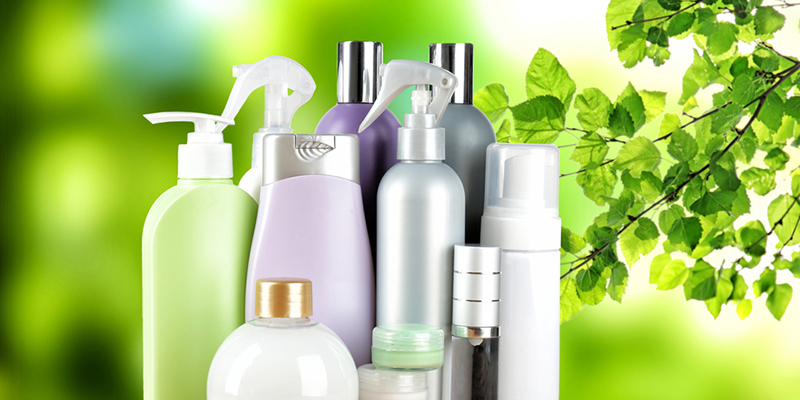
In recent years, the beauty industry has seen a notable shift toward more personalized and sustainable skincare options. Consumers are increasingly seeking products that not only cater to their unique skin types but also prioritize natural and ethical ingredients. Enter the world of private label organic skincare, where brands can create custom skin care formulations that resonate with the growing demand for purity and personalization.
What is Private Label Organic Skincare?
At its core, private labeling allows businesses to collaborate with manufacturers to sell products under their own brand names. This approach offers numerous benefits, particularly in the skincare sector, where it enables brands to deliver high-quality products without the hefty investment of developing their own manufacturing facilities.
Organic skincare, on the other hand, ensures that products are formulated with ingredients that are grown without the use of synthetic pesticides, fertilizers, or genetically modified organisms. When combined, private label organic skincare provides an opportunity for brands to offer consumers eco-friendly and effective solutions without compromising on quality or ethics.
Why Choose Private Label Skincare Products?
- Customization:
- One of the most appealing aspects of private label skincare is the ability to create custom skin care formulations. Brands can work with manufacturers to develop products tailored to specific skin concerns, ensuring that they meet the unique needs of their target audience.
- Whether it’s a hydrating serum for dry skin or a gentle exfoliator for sensitive types, the possibilities are endless. This level of customization allows brands to stand out in a saturated market by offering truly unique solutions.
- Quality Assurance:
- Private label products often come from seasoned manufacturers well-versed in the intricacies of skincare formulation. This ensures that the end product meets stringent quality and safety standards.
- When opting for organic formulations, brands can assure their customers that the products are free from potentially harmful chemicals, providing peace of mind and aligning with the values of health-conscious consumers.
- Brand Flexibility:
- By choosing private label options, brands have the flexibility to expand their product lines without significant investment. This adaptability allows them to respond quickly to market trends and consumer preferences.
- Additionally, the branding and packaging can be tailored to reflect the brand’s identity, further enhancing its appeal and market presence.
The Growing Demand for Organic Skincare
The shift towards organic skincare isn’t just a trend—it’s a movement driven by informed consumers who are more conscious about what they apply to their skin. Here are some reasons why organic skincare is gaining traction:
- Health Consciousness: With increasing awareness about the potential dangers of synthetic ingredients, more consumers are turning to organic products as a safer alternative.
- Environmental Concerns: The beauty industry is a significant contributor to pollution. Organic skincare emphasizes sustainability, reducing the environmental impact by using biodegradable ingredients and eco-friendly packaging.
- Efficacy and Results: Natural ingredients often come packed with vitamins, minerals, and antioxidants, which can be potent allies in achieving healthy, glowing skin.
How to Start Your Own Private Label Organic Skincare Line
Launching a line of private label skin care products might seem daunting, but with the right approach, it can be a rewarding venture. Here’s how you can get started:
1. Define Your Niche
Before anything else, identify your target market and their specific needs. Are you catering to those seeking anti-aging solutions or individuals with acne-prone skin? This will guide your formulation choices and marketing strategies.
2. Collaborate with the Right Manufacturer
Partnering with a trusted manufacturer is crucial. Look for those who specialize in organic formulations and have a track record of producing high-quality products. They should offer a range of customizable options and be open to incorporating your unique brand vision.
3. Develop Unique Formulations
Work closely with your manufacturer to develop custom skin care formulations. Choose ingredients that align with your brand values and address the specific concerns of your target market. Remember, the uniqueness of your product will set you apart.
4. Focus on Branding and Packaging
Your brand’s identity is conveyed through its packaging and branding. Invest in creative design that reflects your brand ethos and appeals to your target audience. Eco-friendly packaging can further emphasize your commitment to sustainability.
5. Market Effectively
With your products ready, it’s time to reach your audience. Utilize social media, influencer partnerships, and content marketing to build awareness and engage with your potential customers. Highlight the benefits of your organic formulations and the unique attributes that differentiate your brand.
Conclusion
The appeal of private label organic skincare lies in its ability to offer high-quality, personalized solutions that align with the values of modern consumers. By leveraging custom skin care formulations, brands can not only meet the growing demand for natural and ethical products but also establish themselves as leaders in the industry.